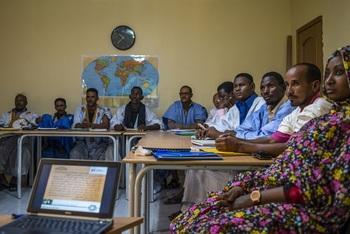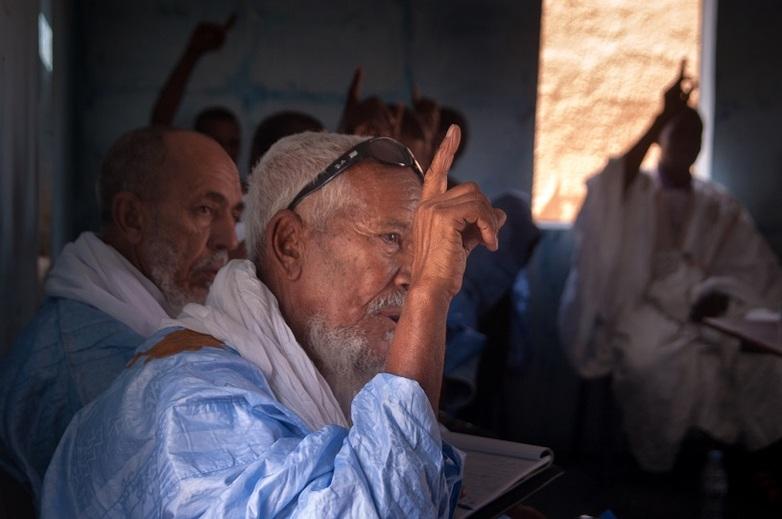Approach
With regard to public finances, the programme is supporting the Ministry of Finance in establishing a modern system for managing state income and expenditure. There is an exchange of information aided by digital solutions, process and organisational advisory services, networking with other institutions and the further training of key actors. The programme is helping establish efficient procedures.
The programme is also assisting with the implementation of the Extractive Industries Transparency Initiative (EITI) at national level. This promotes the transparent and sustainable use of income from the state-run extractive and fisheries sectors.
In the field of decentralisation, the programme supports the Ministry of the Interior and Decentralization and local authorities in implementing the national reforms. An important stage in this process is setting up an internet platform for providing information and key figures relating to the administrative, economic and social situation in local communities (for example on personnel costs, rates of access to drinking water and citizen participation). Up to now Mauritania is the only country in Africa that has a complete database of this type.
Civil society groups receive support in developing awareness-raising measures in the fields of public finance and decentralisation. This should further integrate the topics of transparency and accountability in administrative procedures in the public debate and keep the population better informed about their rights and participation options.
Results
The introduction of efficient IT systems made public finance management more transparent and helps the administration enhance its accountability. For example, in 2016 nine communities in Nouakchott and six other cities digitally presented their municipal budgets. In this context, local public officials were able to train 40 colleagues on the topics of public finances and gender-sensitive budgeting.
The provision of support to the national EITI Committee has helped it publish the EITI annual reports on time since 2012. Mauritania’s compliance has been secured through ongoing alignment with international standards.
Over 1,200 local public and elected officials (of whom 197 are women) received basic and further training in over 16,300 training days based on specially developed lesson plans tailored to the function – including on the topics of strategic planning, procurement of materials and services, and information and communication techniques. The responsible ministry is being advised on the introduction of a quality management system, thereby ensuring the sustainability of the basic and further training.
By early 2017, various activities (role-plays, photo exhibition and videos) raised awareness among some 11,000 people of issues of anti-corruption, transparency, good governance and gender.

